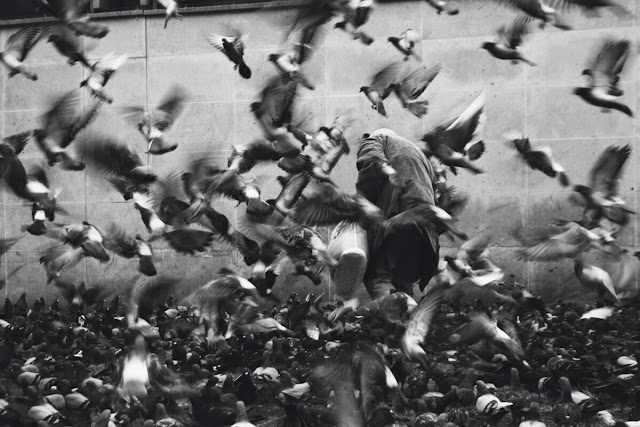A muslim youth is the pillars of resurgence and the foundation of
change. Change starts from the mind and spreads its tentacles to the
society. Allah establishes His fundamental principle concerning it as:
..... Verily Allah will not Change the condition of a people as long as
they do not Change their states of minds.... Qur'an (11, verse11).
Hence, it is obligatory on the Muslim youth to be greatly concerned
about himself/herself, and commit it to all the areas that he/she wants
others to implement on themselves.
When a Muslim is steadfast on the path of his Lord, and he knows his
right and duties, defines his priorities and plans his time, he will be
able to discharge all the Responsibilities expected from him, with which
he Changes himself and the society. Here are some of the duties:
1. Iman, knowledge and education - Islam pays alot of attention to the
building of the human personality and takes care of it in all its
aspects - material and abstract, spiritual and intellectual. Every
aspect affects the other and fortune is based on balance, mutual support
and mutual co-operation of these powers.
knowledge is the path through which man distinguishes between
goodness, and bad. It is also the path towards building of nations and
the resurgence of a society. Thus:
"The best of friends.... A beneficial Book"
2. Times of work: A Muslim is an active person, to him work is worship
and perfection of work is act of seeking closeness to his Lord. A man
that sits without working has no honour in the Islamic society.
The caliph Umar ibn al-khattab said: 'I would see a man and be
impressed by him. But when I am informed that he has no profession or
trade loses his dignity before me'. A Muslim is an organized person. He
gives everyone who has a right his due right. He organizes his time. He
gives every work a suitable time.
3. Rest time: Rest, relaxation and physical exercises are often
neglected, no importance is attached to them, they are not given
adequate and suitable time. This is to the extent that when they are
mentioned in our programmes, we drop them on the excuse that we have no
time for them and that important works have taken the time of rest...
And so on..
Ali (R.A) said: ' Relax the hearts hour after hour, because if the heart is under constant compulsion, it turns blind.'
4. Time to socialize: this social behaviour would reflect a noble
feeling in our souls that have been devoid or nearly devoid of emotional
feelings. It would also make us have knowledge of our prevailing
circumstance.
5. Time to sleep: To organize time - in general - it is compulsory to
concentrate on one activity that takes a great part of our time - it is
sleep. If you organize your sleep well, it is possible to organize the
remainder of the task, necessary. You may ask: Should I sleep less so
that I can have additional time?
No; that is a faulty style. The reality is that you may need additional
sleep to be able to carry out a better and a more perfect task. [The
prophet said: " There is no negligence in sleep; negligence is just in
keeping awake" (Sahih al-Jaami' as-Sagheer)]
among the peak of mistakes and great injustice to our right and that of
others is for us to reduce the time of our sleep and then afterwards
sleep at gathering and meetings. Even if we do not sleep we will
participate at a level below satisfactory because we would not have
given our body and brain their needs of rest and sleep. A person that
sleeps late would fundamentally be deprived of the early hours of the
morning. Even his mental situation during the late night hours - after a
long day of hard work - would be at its minimum serenity.
A better approach is that a person Should sleep early and wake up
early. Then he will have the morning period, which is one of the most
blessed and glittering, when he will be at the climaxed of intellectual
serenity and psychological preparedness.
Studies have also confirmed that many authors and journalists
write their important works in the early hours of the morning. We
Muslims find this in the directives of prophet Muhammad (s.a.w) when he
used to say:
"Oh Allah, bless my Ummah in their dawn" (Ahmad).
INVEST THE EARLY HOURS IN:
A. Recitation of Qur'an and its memorization.
B. Early morning Adhkaar (invocations).
C. Studying and learning.
D. Carrying out important tasks.
6. Emergencies and problems: Emergencies and problems are part of the
marks of life, and as long as man works, he is exposed to problems. A
person who does not face problems is not working. Planning reduces many
of them and assists in solving them but, naturally, it does not stop
them. It is compulsory for a person to include a program and scheme to
solve the problems in his plan. Common attributes you can do are:
1. Turn away from negative language and get committed to the positive
one. See a problem as an opportunity to accept challenges, show
abilities and gather experiences.
2. Knowing the cause leading to the occurrence of the problem prevents 20% of problems, etc.
3. View a problem as having a logical solution that can be implemented.
lastly: These are quick observations that pointed out on to value of
time in the life of a muslim. The prophet narrated from Suhuf Ibraheem
that:
"It is necessary for the wise - as long as he is not mentally disabled - to have four periods:
1. Time of consultation with his Lord.
2. Time to evaluate himself.
3. Time to ponder over the creations of Allah.
4. Time to spend for seeking his need in terms of food and drink".
[Ibn Hibbaan (from Abu Dharr) and al-Haakim].
- Muslimah
















































